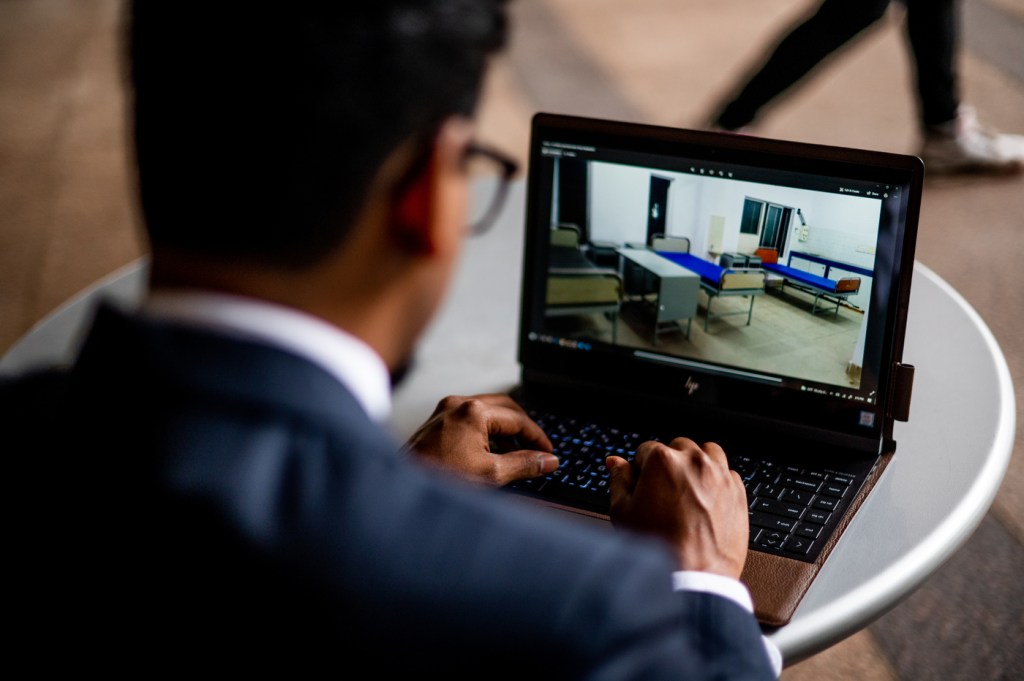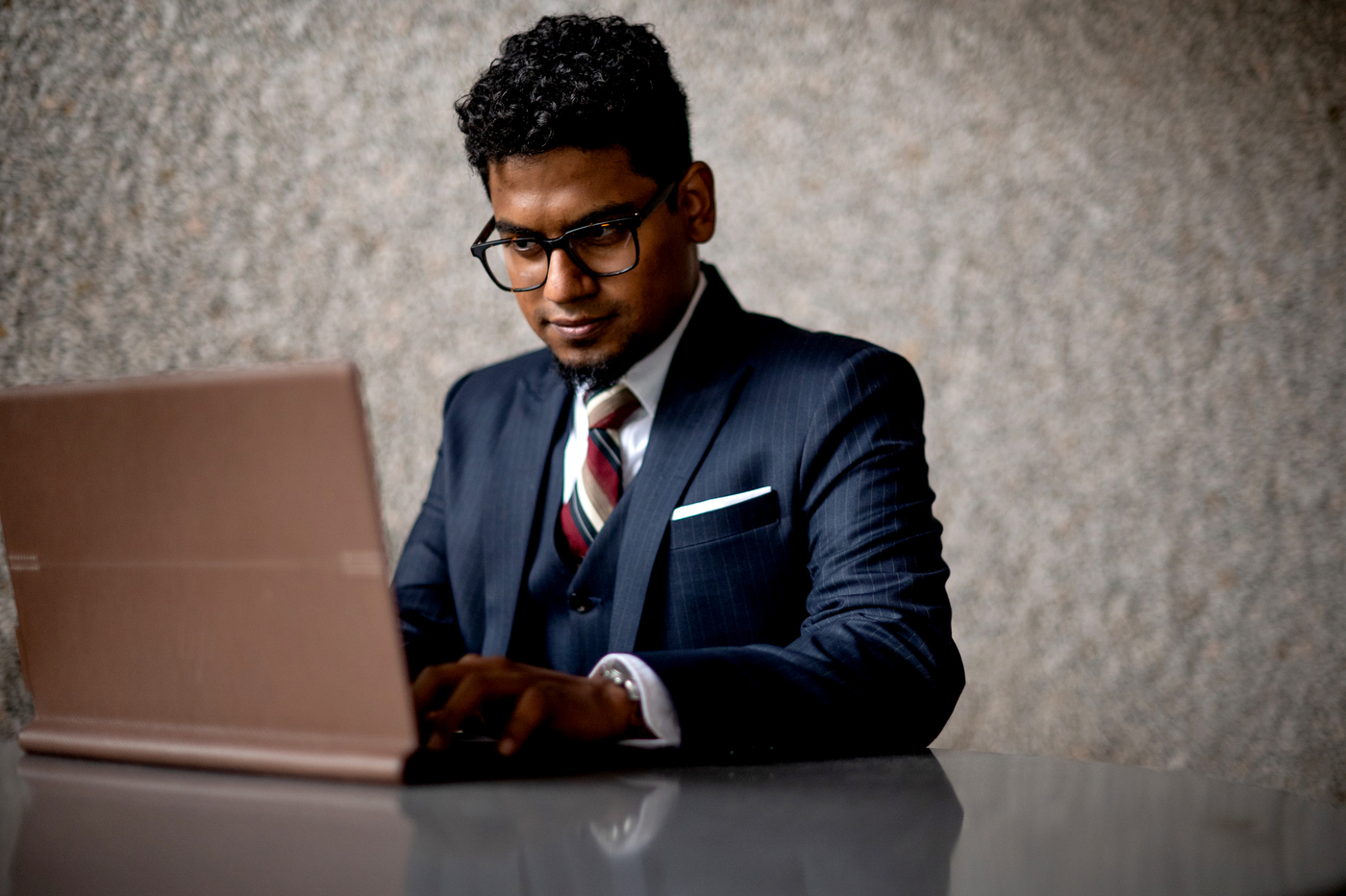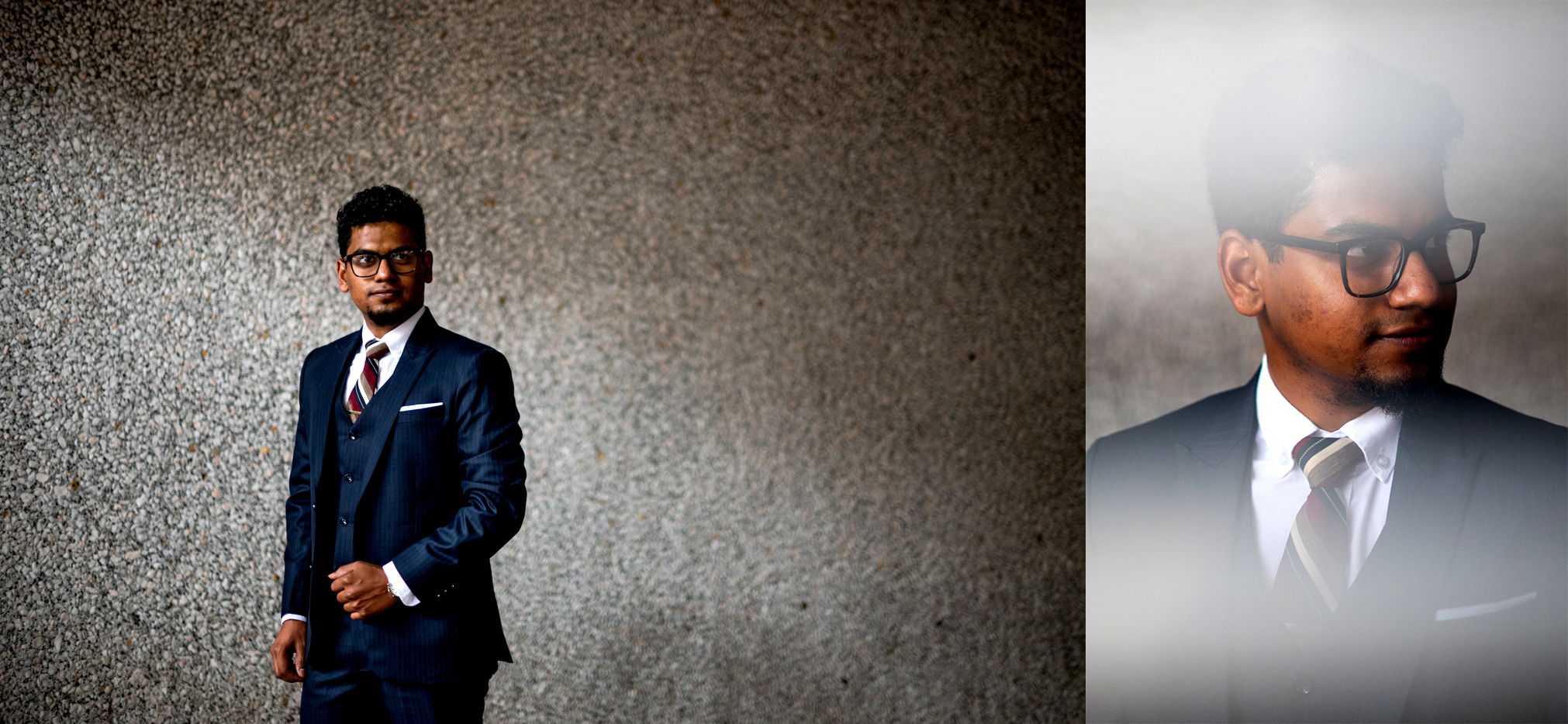The COVID-19 outbreak in India hit hard in his native Bangalore. So he built a hospital there.

Managing a team of people in a time zone almost half a day ahead is at the very least inconvenient, if not completely exhausting. But Jason Peter hasn’t been getting a lot of sleep recently anyway.

The hospital Peter developed will provide 130 beds and at least four ventilators. Peter’s team hopes to treat 400 patients per month. Photo by Matthew Modoono/Northeastern University
“The thought of people in my hometown dying in the streets literally keeps me up at night,” says Peter, a Northeastern graduate student in project management who has spent the past few weeks working through the night to develop a COVID-19 hospital in his native Bangalore, India — an inspiration that took form from his capstone project.
“When I saw people begging for help outside of hospitals because their family members were dying, I knew I had to do something,” says Peter, who spent part of the pandemic in lockdown in Bangalore and organized the project from his Boston residence.
The hospital, which will be called the Rapha Care Center, will open on July 1. The five-floor building will provide 130 beds and at least four ventilators. Peter’s team hopes to treat 400 patients per month.
Despite the current shortage of medical oxygen in India, Peter anticipates that the Rapha Care Center will have enough oxygen to treat each patient. “The landlord of the building is part of the hospital network,” Peter says. “When we made the rental agreement, we didn’t just want the building, but a functional hospital, so they’ve promised to provide a lot of the medical equipment.”
Although the hospital services won’t be free at the Rapha Care Center, Peter plans to offer a low-cost alternative to other hospitals in the area. For example, an intensive care unit in most major cities can cost upwards of 90,000 rupees per day, which is about $1,200. Peter plans to charge no more than 12,000 rupees per day for an intensive care unit.
“Most people in India don’t have health insurance,” Peter says. “Most people pay out of pocket, and generally, the care is pretty cheap.” The extremity of the pandemic has inflated health care prices, though.

Once the hospital opens, Peter will develop a social work team to evaluate patients’ finances to offer discounted care to poorer patients. “The bottom line, though, is that no one will be denied care because of an inability to pay,” he says.
So far, Peter has raised $130,000 to cover the cost of renovations, rent, and a 115-person staff including doctors, nurses, cleaning staff, cooks, and administration personnel. The D’Amore-McKim School of Business donated $10,000 to the project. “I want to challenge other schools at Northeastern to match or double that donation,” Peter says.
In addition to financial support, Peter has also received counseling from his advisors at Northeastern. “Todd Loeb and Cheryl Gross have been instrumental. They’ve been supportive of the project, and they’ve been supportive of me as an individual. They’ve helped me search for jobs in the midst of all this,” says Peter, who will graduate in less than a month.
While the Rapha Care Center is currently tailored to Bangalore’s needs, Peter hopes the hospital can provide a blueprint for other communities looking to provide low-cost COVID-19 treatment. “We have some partners in rural areas who are saying that if we help them set something up, they’ll run it,” he says. “We’re definitely going to explore that idea moving forward.”
“While doing this project, I’ve learned that it’s not your ability that matters. It’s your availability,” Peter says. “If you make yourself available to the possibility of making a change in the world, the resources to do so will follow naturally.”
For media inquiries, please contact media@northeastern.edu.





